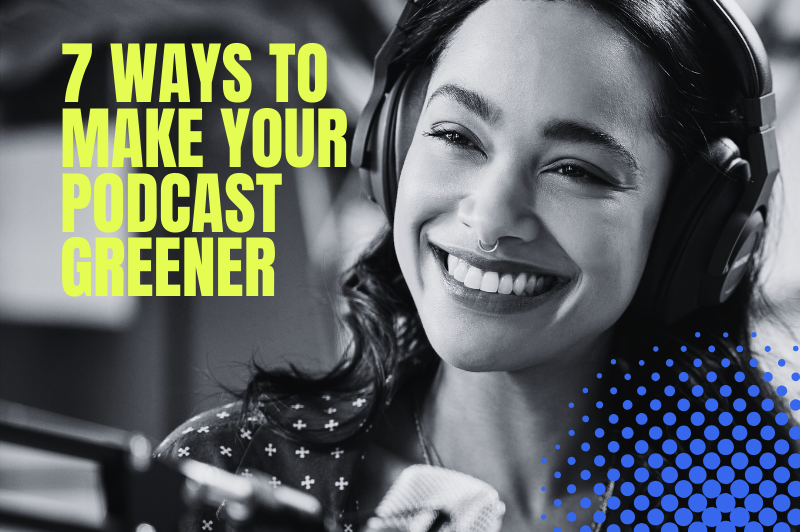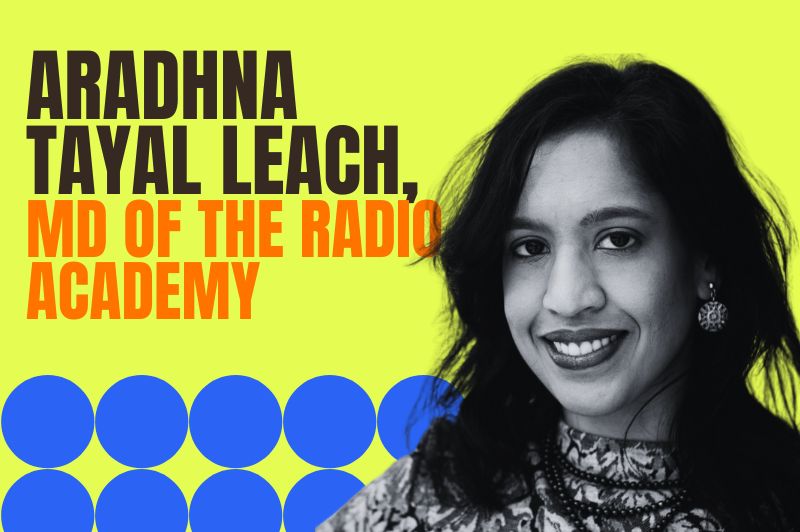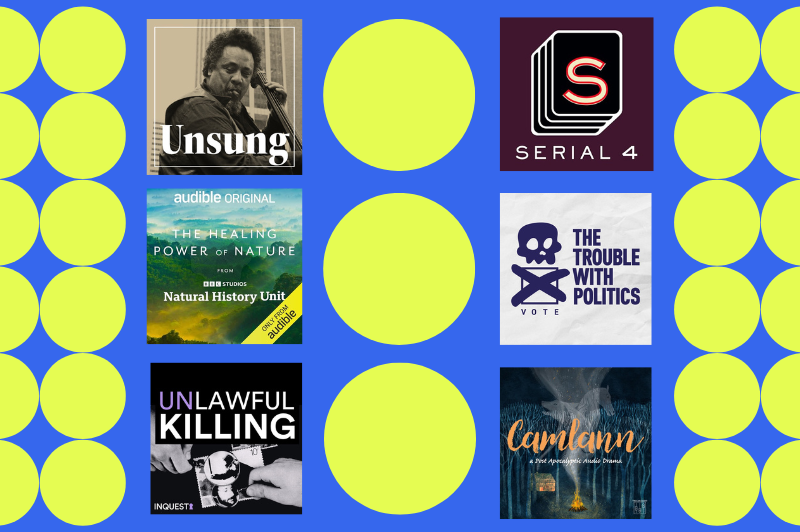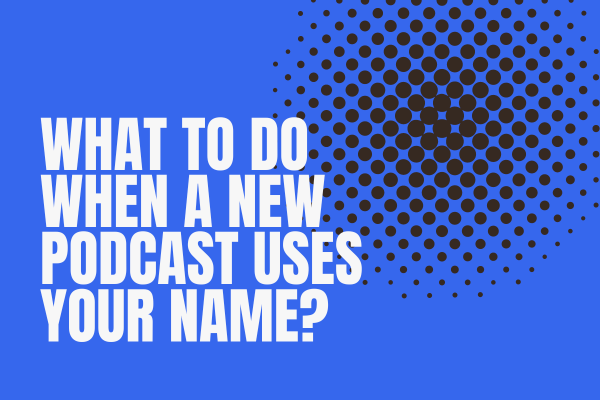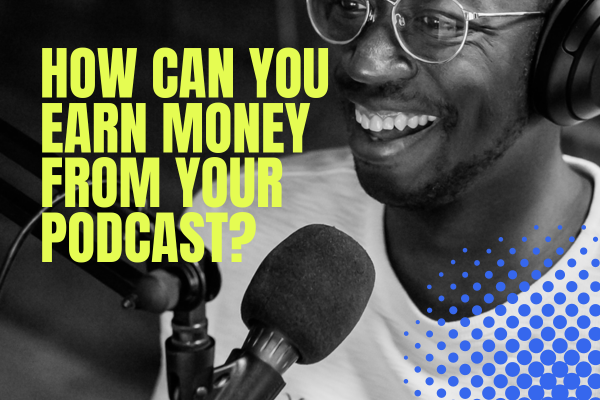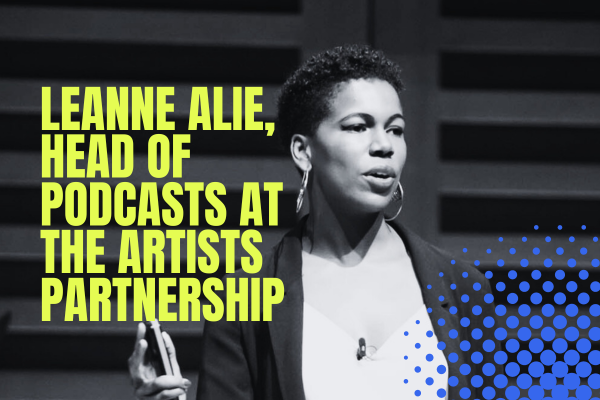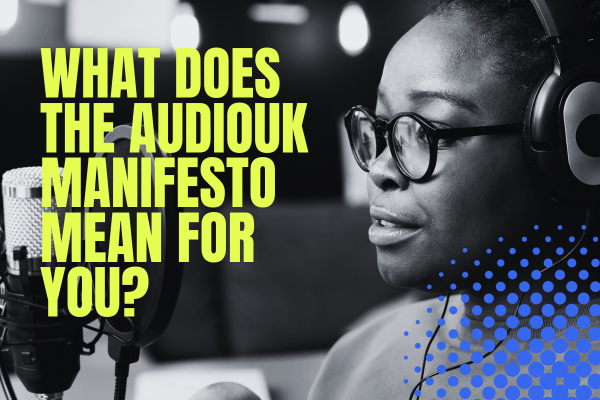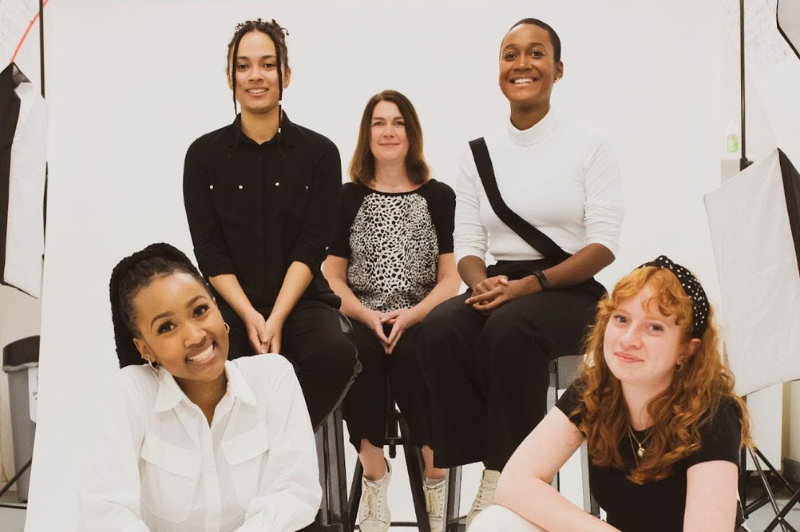This Earth Day, Francesca Turauskis suggests how podcasters could make their shows more sustainable with some simple, green production methods.
Earth Day is a yearly event on 22nd April to demonstrate support for environmental protection, and each year I love to see the lists of podcasts about sustainability shared. If you are trying to be more environmentally friendly, you’ve probably listened to shows giving you tips to try in your personal life.
However, you might not have considered ways to make your podcasting more sustainable. This isn’t surprising, as during my research I found very little information around the subject! The resources that were available, such as the Audio UK Sustainability Guidelines, are more focused on businesses and freelancers rather than independent podcasts.
The good news is, there are several ways we can all make our podcasting greener – here are seven suggestions of easy ways to make your show more sustainable.
Make audio-only podcasts
The rise of video podcasts is undeniable, but if you’ve been wondering whether to start creating video for your show, it’s worth bearing in mind that it’s not as eco-friendly as audio-only podcasts. One of the biggest carbon emissions for digital content is the electricity and energy needed to create, stream and store it on servers. Because videos are larger files than audio, they create more carbon emissions through the energy used each time someone watches them.
Audio advocates can rejoice in the fact that audio-only podcasts are significantly more sustainable than video. According to one study about the “overlooked environmental footprint of increasing Internet use“, audio-only Zoom calls reduce carbon emissions by up to 96%, whilst another study points out that YouTube still wastes energy even if you only listen and aren’t watching the video.
Borrow, Buy Secondhand and Mend
As well as the non-tangible electricity used in podcasting, we use a fair amount of equipment to create our shows. Microphones, recorders, laptops and headphones are all things we can’t really separate from audio production. This kind of electronic equipment can take a lot of resources to make, and if you’re just starting out in podcast production it can be tempting to buy everything – and perhaps end up using it once. It’s worth borrowing equipment before you buy to check if it’s what you need – Fat Llama is a great resource for testing tech equipment of all kinds.
If you do want to buy something, consider looking for something secondhand in the first instance. When buying new, think ahead, and get the best equipment you can afford rather than buying something that you’ll need to throw away after a year. If you get an extended warranty, a lot of equipment can be repaired for years or even decades. When something does come to the end of its life, Audio UK suggests “Recycle electronic devices through certified e-waste programs or donate/sell functioning devices you’re done with instead of trashing them”.
Another thing to consider with equipment is using rechargeable batteries rather than throwing away batteries. Just be sure to keep them charged and carry spares so that you don’t run out of power.
Produce Remotely and Use Local Talent
Another good suggestion from Audio UK is to reconsider how much you need to travel when producing your show. Remote recording has come along so much since COVID enforced production at a distance, and many productions now use it as a default. Whilst there might be a difference in the sound quality compared to getting in a studio, a good producer can do a lot from afar. You can use remote recording software designed for audio, such as Riverside, SquadCast or Iris, to keep the audio quality high.
Another option is to post microphones and instructions to your guests for them to record themselves locally. I have done this when working for Broccoli Productions and with Tremula Network (hint: always insure the package for the cost of the equipment and put a return address on it. Yes I learned from experience!)
If you do want a more controlled, in-person interview, you can hire local producers or book them into a local studio rather than travelling to the interview yourself. This is particularly true if you’re producing podcasts internationally, and it has the added benefit of being more cost-effective than plane travel, as well as widening your audio network.
Keep Your Production Organised
Speaking of good producers, another thing that can keep your carbon footprint down is having an organised production and filing system. Duplicate files, exporting and uploading things multiple times and sending files back and forth all take up energy, electricity and carbon. There are a couple of things you can do to keep your production organised and reduce this production footprint.
- If you have a workflow where several people need to input and sign-off, make sure any edit requests are clearly explained and understood so there is less back-and-forth with files.
- I always advocate for having a good filing and backup system to avoid losing important files, but do you really need “Version 2.b” of that project you worked on at university ten years ago? Only keep the files and projects that you actually need to save space on your computer and in the Cloud.
- Those ten thousand tabs you have open on your browser? We’re all guilty of it (I’m currently at 28…) but they not only slow down your browser and computer capacity, they all add to the carbon footprint of your internet usage. Try keeping your browser cleaner and opening tabs only when they are needed.
- Make sure all drafts and exports are in a compressed file type that you can upload to your podcast hosting platform (e.g. MP3 or M4A). Some audio producers like to work with WAV or FLAC files because these are better quality, and this makes sense in your DAW projects. However, most hosting platforms and podcast players will actually reduce the audio quality and file size of your final episode for streaming purposes. It is better to export and upload compressed files because they take less energy, but they also sound more like the final episode your listeners will hear.
Choose a Greener Hosting Platform
One of the things I noticed when researching this article is how little information there is on the eco credentials of podcast hosting platforms. Of the main podcast hosting platforms, PodBean was the only one I could find a green initiative statement for, and whilst Spotify for Podcasters doesn’t have information about their podcast hosting specifically, the company does consider the climate in its yearly Equity and Impact Report.
This is very disappointing because podcast hosting takes a great deal of internet space and server energy (that’s why you can’t host your RSS feed on a regular website). One thing that you could consider is emailing your current podcast host to ask about their climate considerations.
Get A Green Website
There are many benefits to having a website for your podcast, including making your show more discoverable, the opportunities to repurpose your content and provide extra value for your listeners. If you do have your own separate platform, this is another place you can look to lower your podcast’s carbon footprint. According to Website Carbon Calculator, the average website produces 60kg of carbon emissions per year, and you can use their website to check how your own measures up. If you find out there is room for improvement, there are few things you can do to make your website greener:
- Switch to a green host. It is far easier to find a green host for your website than your podcast. Whilst many big companies – including a certain popular podcast advertiser – don’t have a public sustainability or environmental policy, other web host companies are openly trying to provide a greener option by using renewable energy, and carbon offsetting their energy use.
- Turn on lazy-load images and turn off auto-play. If you changes these settings on the website so that visitors only have visual content when they need it, it reduces the background processing.
- Use a minimalist design. Website designs with fewer images, lots of space on the page and default fonts are more energy efficient. The busier and more bespoke a website is, the more energy it will require to run.
- Limit or remove pop-ups and cookies. Okay, this is a bit of a tricky one for podcasters who want information on their audience, because your website can be a good source for statistics on who is interested in your show. Likewise, pop-ups can be really good for announcing news, growing your mailing list and more. However, it’s worth knowing that both use a lot of data in the background of your browser.
Talk About Climate Change
The last thing we can do as podcasters to help make steps towards a greener planet is the thing we’re probably best at – we can talk about climate change. It is worth remembering that you have influence with your listeners and community, and even if you don’t have to have a climate podcast, you could think about the ways your subject is affected by the issue. After COP26, broadcasters and filmmakers committed to the Climate Content Pledge, which states “We will reach more of our audiences with content that helps everyone understand and navigate the path to Net Zero, and inspires them to make greener choices.” Whilst this pledge didn’t encompass audio specifically, there is no reason we can’t aim for it too.
Do What You Can
It might be overwhelming to think about all the changes you could do, and it can be especially frustrating to think about making greener choices on an independent level when the audio industry seems to be lacking a drive for sustainability. Do what you can with the resources that you have, and it might encourage others to follow. The good news is, audio is inherently more sustainable than other forms of media. So keep making and listening to podcasts – it might help save the planet!
—
Want more content about sustainability? Check out our favourite sustainable living and climate podcasts, or listen to the new show, Climate Decoded, for conversations that make climate science and policy accessible and engaging for everyone.
This post contains affiliate links from which members of the Content is Queen team may make a commission.

